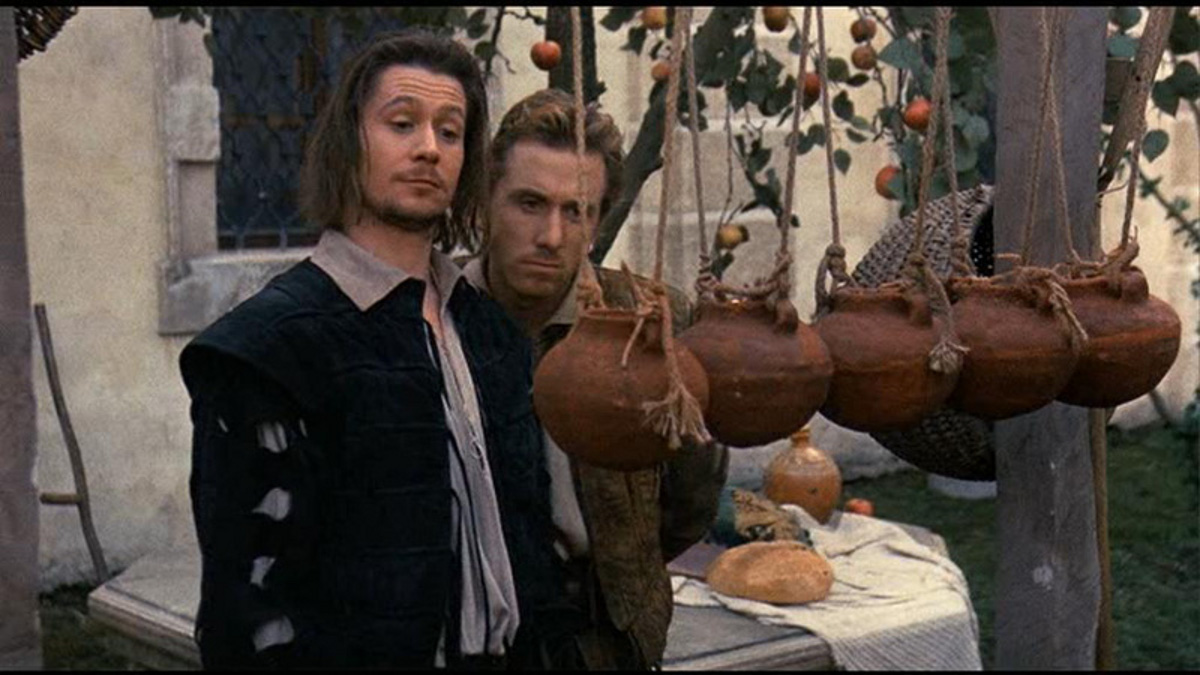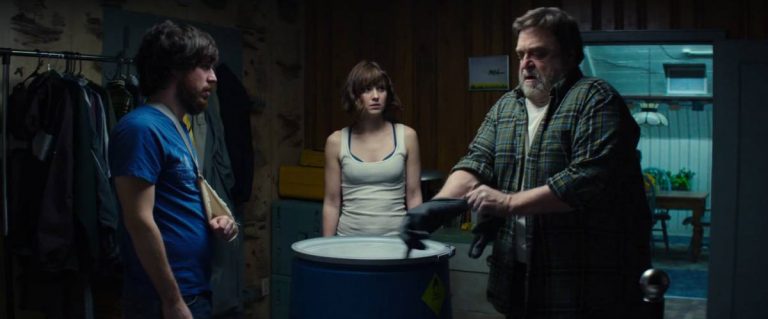J.J. Abrams is almost at the point of defying logic, as far as cinematic influence is concerned. Even 10 years ago I don’t think anyone could have guessed that the guy who made Lost would end up taking directing/producing duties on reboots of the two most popular sci-fi franchises of all time, back to back. It’s easy to forget that even 8 years ago, the biggest project his name was attached to was Cloverfield, an enjoyable, nausea inducing found-footage monster mash/New York smash that was somewhat oversold by its amazing viral marketing campaign.
For those who don’t recall, let me moisten those dried up old memory nodes (I’m sorry that turned out sounding so disgusting). The title of the film, as ambiguous as it turned out to be, wasn’t even revealed until shortly before the film actually dropped, they probably waited as long as they possibly could before cinemas needed something to put in the listings. Before that, all we had were a couple of shaky, perplexing, exhilarating trailers showing Manhattan getting wreck’d by something. Said lack of any defining details, combined with all the other viral marketing bells and whistles (fake soda company, fake Japanese science collective, fake activist site criticising fake collective, fake blogspot about a fake missing person), got people wondering if it was going to tie in with a pre-exiting franchise. Ideas ranged from Godzilla to the Cthulhu mythos to Voltron.
As it turned out, Cloverfield was very much its own beast. The beast in question was a massive, ugly green bastard that looked like a cross-pollination between a snapping turtle, a frog and somebody with really bad Sprengel shoulder. It was pretty good, as these things go, the action (when you could see it) was well done, the tension was well-maintained and we got to see Janis Ian’s head explode. I just sat for 5 minutes trying to think of another Mean Girls reference to work in there and came away with nothing, sorry guys, here’s that Glen Coco bit, it’s not relevant, but it’s still funny. A year or two after it came out, everybody more or less forgot about Cloverfield. Abrams went on to make the first in the new Star Trek series, director Matt Reeves went on to direct the surprisingly good Let Me In and the fucking amazing Dawn of the Planet of the Apes (the next one comes out next year, set loins to girded position) and the world just kind of moved on.
Now, out of absolutely nowhere, a spin-off/pseudo sequel to Cloverfield is looming, set to drop in March. Judging from the information available, it started out as a standalone production and was reworked to tie in with Cloverfield later, having originally been based on a spec script titled The Cellar. Now it’s called 10 Cloverfield Lane and all the trailer really suggests is that it’s about 3 people (John Goodman, Mary Elizabeth Winstead, John Gallagher Jr) living in an underground bunker, surrounded by retro curiosities. Winstead seems to decide she wants to leave, Goodman seems not to like that very much, shenanigans. It’s been described as a ‘blood-relative’ to the original film, rather than a direct continuation or extension of the same narrative. To me, this suggests that this film won’t be the last installment either, it would be extremely odd to revisit an 8-year-old blockbuster to make one low-budget spin-off, and then just leave the two films and never make anything else. So, that in mind, can Cloverfield really be a franchise unto itself?
I waited this long to posit the title question because the answer is an emphatic yes, and if my haphazard love life has taught me anything it’s that you never want to arrive at the crescendo too quickly. Taken by itself, Cloverfield is a fantastic example of the Rosencrantz and Guildenstern effect. Rosencrantz and Guildenstern are Dead is an absurdist play written in 1960 by Tom Stoppard, which retells the story of Hamlet exclusively from the point of view of the titular characters, Hamlet’s two friends. This means that while most of the murdering and soliloquising is happening, the characters in stage are just standing in the wings wondering what the fuck is going on as other major characters wonder in and out, offering meagre fragments of explanation. What this play does so brilliantly is demonstrate how to limit the audience’s perspective on a story so that it leaves gaps for them to fill in, and offer a tighter character focus in the process. There have been numerous examples of this in the time since and when War of the Worlds came along (the Spielberg one), it became apparent how well the trope could apply to monster movies, a few years after that, Cloverfield did it again, arguably even better.

Since then, it’s been a well established part of the formula. Gareth Edwards did it masterfully with Monsters and although his Godzilla was another ‘bigger picture’ affair, the final set piece once again put the R&G effect in play, which is probably why it’s the best part of the film. Well, that and this. Anyway, in Cloverfield‘s case, the limited, ambiguity-ridden story worked in conjunction with the puzzled meta-universe created to promote the film to provide a rich narrative framework, one which has say untouched for the past 8 years. The monster attack didn’t feel like an isolated incident, it felt like the beginning of something. Right at the start of the film Manhattan is completely cut off from the outside world, with no information forthcoming about what might have been going on elsewhere. Since the action was isolated to a camcorder, we never find out what went on after the fact, besides a grainy audio clip after the credits which seemed to be saying that the monster was still alive.
Beyond that, all the fragmented information about the Tagruato company, the ‘T.I.D.O. Wave’ investigation/activism group and all else seem to suggest that some pretty nefarious scientific experimentation had been going on, and that the implications were far wider reaching than one mutated colossus lumbering out of the ocean and beheading Lady Liberty. This is the benefit of pouring so much time and effort into viral marketing for a new intellectual property, Drew Godard, J.J. Abrams and the rest of the team would have had to produce pages upon pages of backstory to contextualise it all, backstory which could theoretically fuel endless film and TV projects, on both grand and small scales. That’s what makes 10 Cloverfield Lane all the more exciting, rather than simply following on with another big monster attacking another city, or the same big monster coming back and menacing a new gaggle of unreasonably beautiful young professionals, we’re getting something completely different that will likely be telling a story only loosely tied to the original, with any information about the overarching narrative staying limited to hints, and perhaps one big reveal.
In this case, it’s not necessarily about the story being original (thus far, it’s been anything but), and more about the way it’s being presented. The danger there is that the whole thing will end up going the way of Lost and overcomplicating itself, the brains behind this have to remain assured that even another 10 years and 3 or 4 loose-knit films/mini-series down the line, nobody will feel short changed if we find out it was just some chemical research fiasco which started mutating everything. Even if the structure is build on ground well trodden, it can be used to tell a plethora of individually engaging tales, the fact that they all intertwine is just the icing on the cake. I guess we’ll just have to wait until March to see what the future holds, but it’s probably fair to say that Cloverfield has the potential to become one of the most successful new franchises in years, with everyone else busying themselves digging up the past.
Some of the coverage you find on Cultured Vultures contains affiliate links, which provide us with small commissions based on purchases made from visiting our site. We cover gaming news, movie reviews, wrestling and much more.



